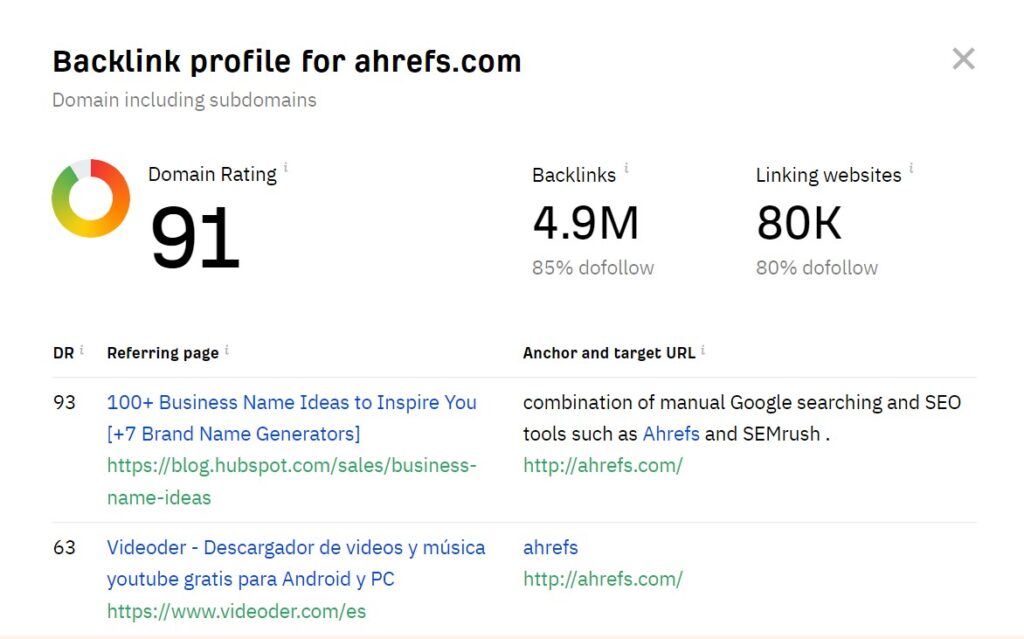Domain age is often considered an important factor in determining a website’s success. It is frequently used as a metric to gauge a site’s credibility and SEO (Search Engine Optimization) ranking. Domain age refers to the length of time a website has been registered and maintained, but the question remains: Does domain age really matter?
Does Domain Age Really Matter?
The simple answer is that the age of a domain by itself doesn’t directly impact a website’s success. What does matter, however, is the history and use of the domain. Aged domains, which have been in operation for some time, often carry a more valuable SEO benefit because they accumulate backlinks—links from other websites that point to the domain. These backlinks are a key factor in how search engines evaluate the website’s credibility and rank it in search results.
When a website goes offline or stops being maintained, resellers may purchase the domain to preserve its existing SEO value. In this case, the domain may retain some SEO benefit, but only if it has an established backlink profile. Therefore, a domain’s age alone—without any prior use or accumulated backlinks—does not necessarily offer a ranking advantage.
What to Consider When Looking at Domain History
While domain age itself may not directly influence SEO rankings, there are several factors to consider when examining a domain’s history and potential value.
1. Proof of Concept: Does This Domain Work as a Brand?
It’s important to check whether the domain has been used for an actual website in the past or if it has only served as a placeholder. You can do this by using tools like the Wayback Machine, which allows you to view archived versions of websites. If you find that the domain has been a simple landing page with little content or engagement over the years, it may not be a strong candidate for building a brand.
2. Backlinks: Does the Domain Have a Strong Backlink Profile?
A domain with a rich history is often linked to by other websites. Backlinks are a critical aspect of SEO, as they signal to search engines that other sites consider your content valuable and trustworthy. To check a domain’s backlink profile, tools like Ahrefs Backlink Checker can be used. A strong backlink profile can indicate that the domain had popularity or authority in the past, which could be beneficial for SEO purposes.

Key metrics to assess in a backlink profile:
- Number of Backlinks: This refers to the total number of links pointing to the website. More backlinks generally suggest more authority and can improve SEO rankings.
- Number of Linking Domains: This metric shows how many unique websites are linking to the domain. A higher number of linking domains can indicate greater trust and authority, especially if those domains are relevant and reputable.
- Percentage of Do-follow Links: Do-follow links pass SEO value to the linked website, helping improve rankings. If a large percentage of backlinks are do-follow, it can be a sign that the domain has strong SEO potential.
Rating Factor: Does Domain Age Affect SEO Rankings?
While the age of a domain alone doesn’t directly impact SEO rankings, domains that have been associated with a specific business entity or topic for a long time may hold an advantage. Older domains typically have more backlinks and more relevant content, both of which play a significant role in determining rankings on search engines.
The quality of links pointing to a website is a major ranking factor. High-quality, relevant backlinks from authoritative sites can boost a website’s rankings. Similarly, well-organized content that is regularly updated with relevant information can help improve a site’s SEO over time. The more high-quality links a site has pointing to relevant content within its own website, the higher its domain rating is likely to be.
Summary
While domain age itself does not play a direct role in SEO rankings, the history of the domain—including the backlinks it has acquired and the type of content it has hosted—can have a significant impact on a site’s success. For those considering an aged domain, it’s important to evaluate the domain’s history, backlink profile, and overall relevance to ensure it provides value for SEO purposes.
You May Also Like
- How the length of your domain name can impact your business success
- Installing php-ext-brotli on CWP PHP Switcher, CGI Selector, and PHP-FPM Selector
- Domain Authority 101: What Every Website Owner Should Know
- Moving Your Website to a New Domain? Consider the Following…
- Enabling TLS 1.3 in NGINX on CWP/CentOS 7/8/EL7/EL8
